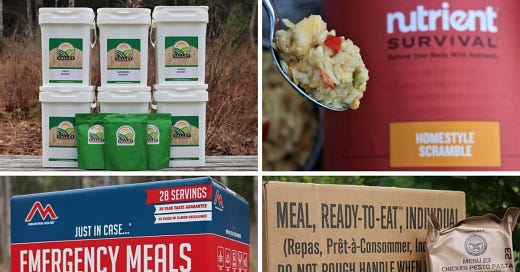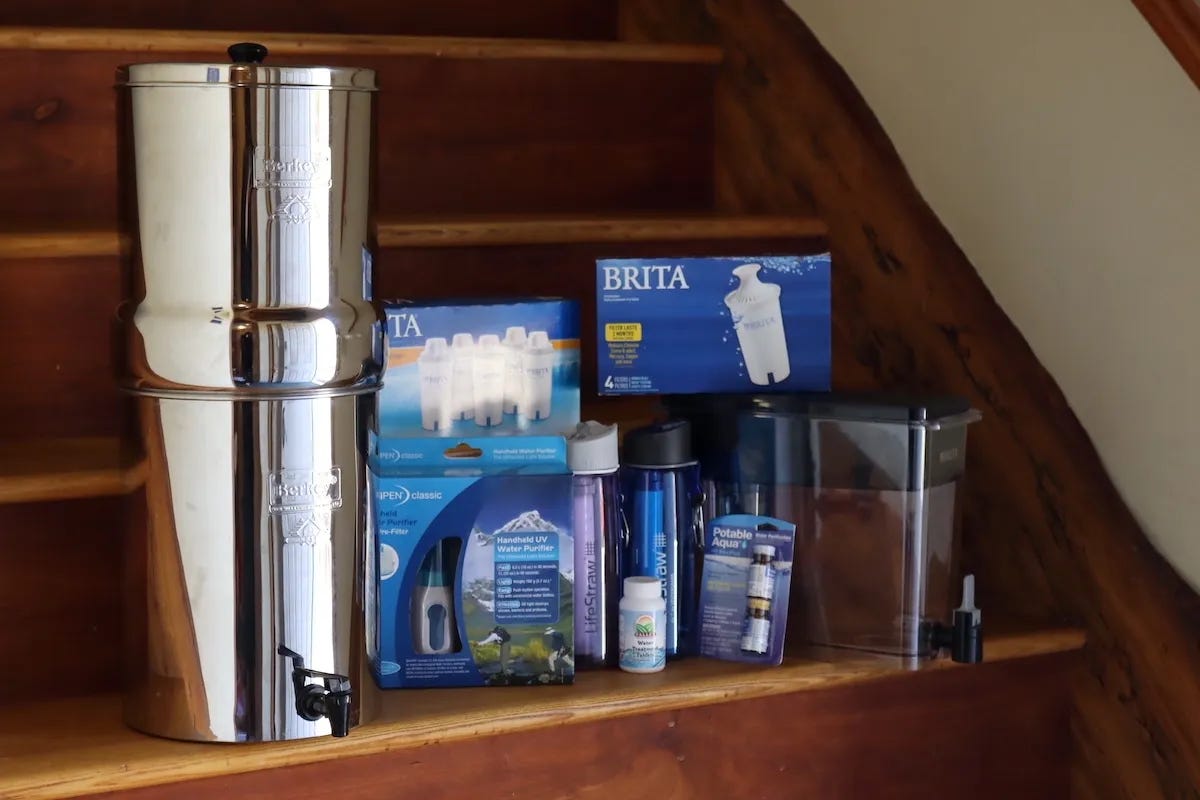September is a time of transition, right on the cusp of the seasons as the last of summer’s heat blends into autumn. Historically, it was when you’d be packing in stores for the winter ahead, and making the last repairs to your infrastructure before the lean season.
These days, most people aren’t exactly packing the larder with 6 months of provisions when there’s a grocery store around the corner (but if you are, awesome). For most people, it actually just means sweaters and the first days of pumpkin latte season.
September was declared national preparedness month back in 2004, largely because it’s the month with the most natural disasters on average. It’s peak hurricane season in the south, overlapping with wildfire season out west, and flood season just about everywhere.
Add in a sprinkling of earthquakes that can happen anytime, and supply chain disruptions that are all the more frequent, and you’ve got a recipe for a tough month.
This year, in particular, we’ve been told all year to prepare for food shortages. In North America, that likely will just mean VERY high food prices, but in many parts of the world, it may mean actual famine, riots, and civil unrest.
Maybe we’ll all get off easy and skate through “preparedness season” without a scratch. Who knows.
What I do know is that there are some really basic things you can do to make sure your family is prepared for disruptions, be they minor inconveniences or major disasters.
The past two years has really reinforced how important it is to have at least 2 weeks’ worth of food on hand, and personally, I’d add in contingency plans for water, sanitation, power, and heat as well.
There’s a whole section of preparedness articles on the blog, with more than 30 articles on practical preparedness. I’m hoping to add quite a few more topics this winter, with guides on:
How to Cook, Heat, and Charge Devices When The Power’s Out
Beginners Guide to Food Storage
Historical Food Preservation Methods (without electricity)
Apartment Preparedness
If there’s anything, in particular, you’d like to learn or ways I can help your family be more prepared, please do let me know in the comments.
(This newsletter contains affiliate links.)
In the meantime, here are some of the most popular preparedness articles to get you started:
Emergency Water: The Best Options for Filtration, Purification, and Storage
The Best (and Worst) Freeze Dried Food for Long-Term Storage
And by far, the best way to be prepared is to prepare your mind and body. I can’t help you with a workout plan, but I can recommend more than 100 books to reskill, organized by topic, covering just about any DIY topic under the sun.
I honestly think there are many great ways to get prepared for free or nearly free, simply by working on your own resilience. I’m not advocating spending a bunch of money to “get ready for the big one” or anything like that. Still, I know people love gear, and sometimes an in-box solution provides a lot of peace of mind.
This time of year is a great time for sales on preparedness gear, and a number of suppliers have given me discount codes to share with you as well.
(Side note here…Getting custom coupon codes is one of the really nice perks about being a writer on the internet these days. Many companies are willing to give me codes discount codes just for asking, so if there is something you’re saving for and would like to save a few pennies, let me know in the comments, I’ll ask them. Really anything, it doesn’t have to be preparedness related. The worst they can say is no, and more often than not, they say yes, and you get 10% off for no reason. Sweet deal, and I’m happy to help if I can…inflation is eating us all!)
Valley Food Storage and Nutrient Survival are my very favorite freeze-dried emergency food companies, and they both make truly spectacular products with a 25+ year shelf life. Use the code “SelfReliance” at either company, and you’ll get 10% off.
I’ve reviewed just about every emergency food company on the market, and those are my favorites. (Nutrient Survival Review and Valley Food Storage Review)
You can read my reviews of other providers too, including:
My Patriot Supply (Great Economy Option)
ReadyWise Review (Fine, but not the best option)
4Patriots Review (Not Recommended)
Legacy Food Storage (Review coming soon, but not recommended)
I also have a Guide to the Best MREs, which will keep you fed, but they are expensive and not usually the best option unless you need portable food and won’t have access to much clean water.
In terms of water preparedness, there’s no better option than a Berkey Water Filter. I take you through all the options, big and small, in my article on emergency water preparedness…but spoiler alert, there’s nothing that really compares to a Berkey.
They’re wicked expensive, I know, but they last a lifetime, and a single filter is rated for multiple years of daily use. You can actually filter pond water through one of these in an emergency, and it’ll come out crystal clear, though really, most people use them for just day-to-day clean water (like filtering all the nasties out of city tap water).
We have well water, but we still filter everything through ours. Water is life y’all, and clean water is incredibly important. Even small amounts of contaminants add up over time in the water you’re drinking and cooking with daily.
They were kind enough to give me a coupon code to share with y’all as well, and if you use the code “SelfReliance” you’ll get 10% off of your order.
How are you preparing this month? What steps are you taking, big or small, to make sure your family is more resilient in the face of all the uncertainties we face in our modern world?
(Comments only, please. Emails tend to get lost in my inbox, and as much as I’d love to get back to each and everyone, my screen time is very limited…and things fall through the cracks, and emails get buried in my inbox. If you comment here, they’re all in one place, and it’s much easier to get back to every single one.)
Until Next Time,
Ashley at Practical Self Reliance






I have a Royal Berkeley and love it! The only con is you have to fill it with another container (or the sprayer hose if it’s near the sink). Can you recommend a water filter that connects in-line with the exterior water source (city or well)? Thank you! Kate
Hi Ashley! I was going to ask about storing water for emergencies...but then scrolled down a bit, and there it was! I live in NH and truly appreciate your words of wisdom. Be well! Kim